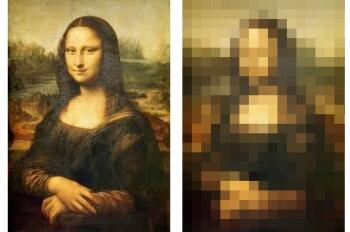Bartski
Gold Member
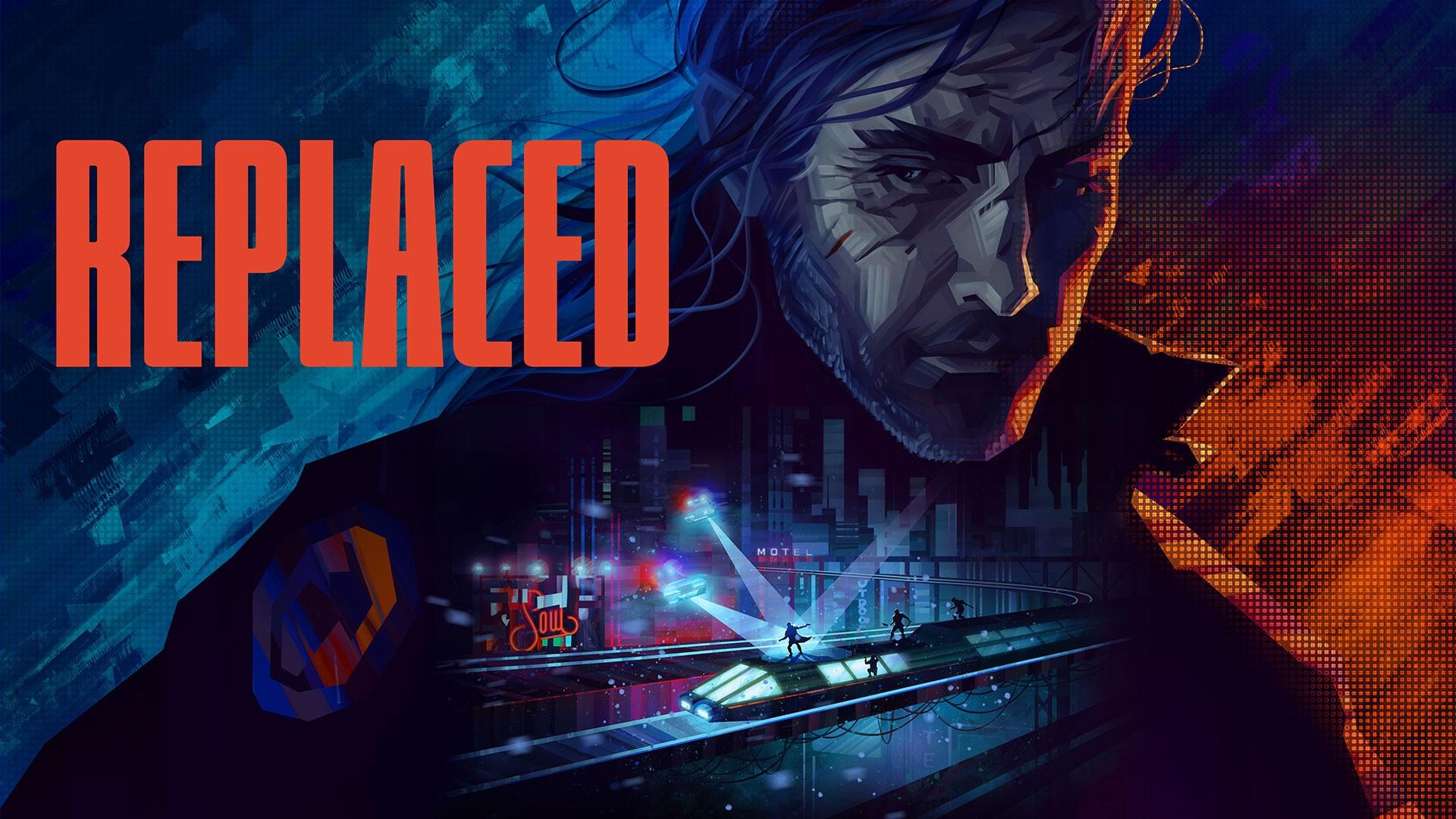
Replaced Injects Arkham-Style Combat into a Beautiful Retro-Futuristic Platformer - Interview
The Escapist interviews Igor Gritsay and Yura Zhdanovich of Sad Cat Studios about upcoming retro-futuristic action platformer game Replaced.
Replaced stunned audiences with its gritty, retro-futuristic visuals when it appeared during Xbox’s E3 2021 press conference last month. But in-between the hyper-stylized pixel graphics were glimpses at free-flow combat and cinematic platforming sections. Developer Sad Cat Studios is concocting something special in Minsk, Belarus, and we caught up with studio co-founder Igor Gritsay and founder and game director Yura Zhdanovich to discuss their work on Replaced, as well as its influences, combat, difficulty, and much more.
The Escapist: Tell me about yourselves and your work on Replaced. I’d love to hear about the studio and what makes the team the perfect group of developers to tackle a project like this.
Igor Gritsay: During our development time, there were many happy little accidents, as Bob Ross would say, but there were also many lucky ones when we found the right people and did the right things for the game when it needed to be done. I wouldn’t say that there is any formula for this. There is a big chunk of luck here. Regarding whether we’re perfect for the job, I really don’t know. We will see upon the release. But internally, I would say that right now we really represent the best of what we could be as a team.
Yura Zhdanovich: When we founded the studio — it was three of us in the beginning, working in a tiny room — it was an opportunity for us, as well as a passion for us, to make story-driven single-player games for the premium market because most of us have been previously in mobile development. It kind of was our idea to start doing something different because from where we are it’s mostly mobile development. We are people who want to do something more complicated, more risky, more advanced.
Can you talk some about those risks as they apply to Replaced?
Igor Gritsay: Replaced initially started as a classic cinematic platformer akin to Flashback and Another World, so our initial vision was within this paradigm. Our first demo build that we were carrying with us around trade shows had a pretty good response. But internally we thought, “This is not enough for us. We won’t be able to tackle this project with our budget and capacity.” So, we thought of how we could improve upon that. We needed to add some spice to the game, not only beautiful decorations and walking from point A to point B. So we did some research on our side and wanted to look at our favorite games and added a combat system, traversal and parkour stuff.
This approach allowed us to actually make it a game and not just a visual experience where you go from point A to point B. I like those kinds of games. I really do. I like Oxenfree. I like Firewatch and stuff. But we needed to think of our budget and our capabilities, so this was one of the main risks that we could not tackle in this project initially. Because if we wanted to do a 60-hour-long game with walking from one point to another, we would be out of budget in no time.
Can you tell me how the art style contributes to the cinematic platforming possibilities and how it contributes to gameplay in general?
Yura Zhdanovich: I would say the art style is basically the sauce of this game. A lot of creative and gameplay decisions have been mostly based around how we can exploit this art style in the most effective and beautiful way. As Igor said previously, when we first were designing the game, we were thinking about more of a classic cinematic platforming experience, which is a lot slower, a lot more paced out. After doing some experimenting and deciding how we can expand this kind of thing and use the art style to our advantage in it, we decided that we definitely want the platforming to still be cinematic but at the same time be interesting, exciting, and accessible. So, that’s where we came to be inspired by other things. Games we love, like, for example, Playdead’s Inside, or the Uncharted series, or Ubisoft’s 2000s Prince of Persia series.
And the combat, for example, was also inspired by the games that made the gameplay much more visual than your typical platformer. That’s where we looked at the Batman: Arkham series, which is very brutal, interesting, but at the same time it’s very visual, and that’s the main thing we wanted to convey and support with this art style.
Igor Gritsay: I would like to add that this art style is kind of a blessing but also a curse. As Yura said before, when we are making a certain choice about gameplay, we have to keep in mind the art style because it has its own restrictions in terms of what we can and can’t do. For example, in platforming, because our character is realistic-looking, we can’t do arcade-style platforming like Celeste or Mario because it just would look dumb in this art style. So, this is why our artists had to draw hundreds and hundreds of animations for our main character so that it can transition smoothly, so everything looks good and, basically, everything feels natural.
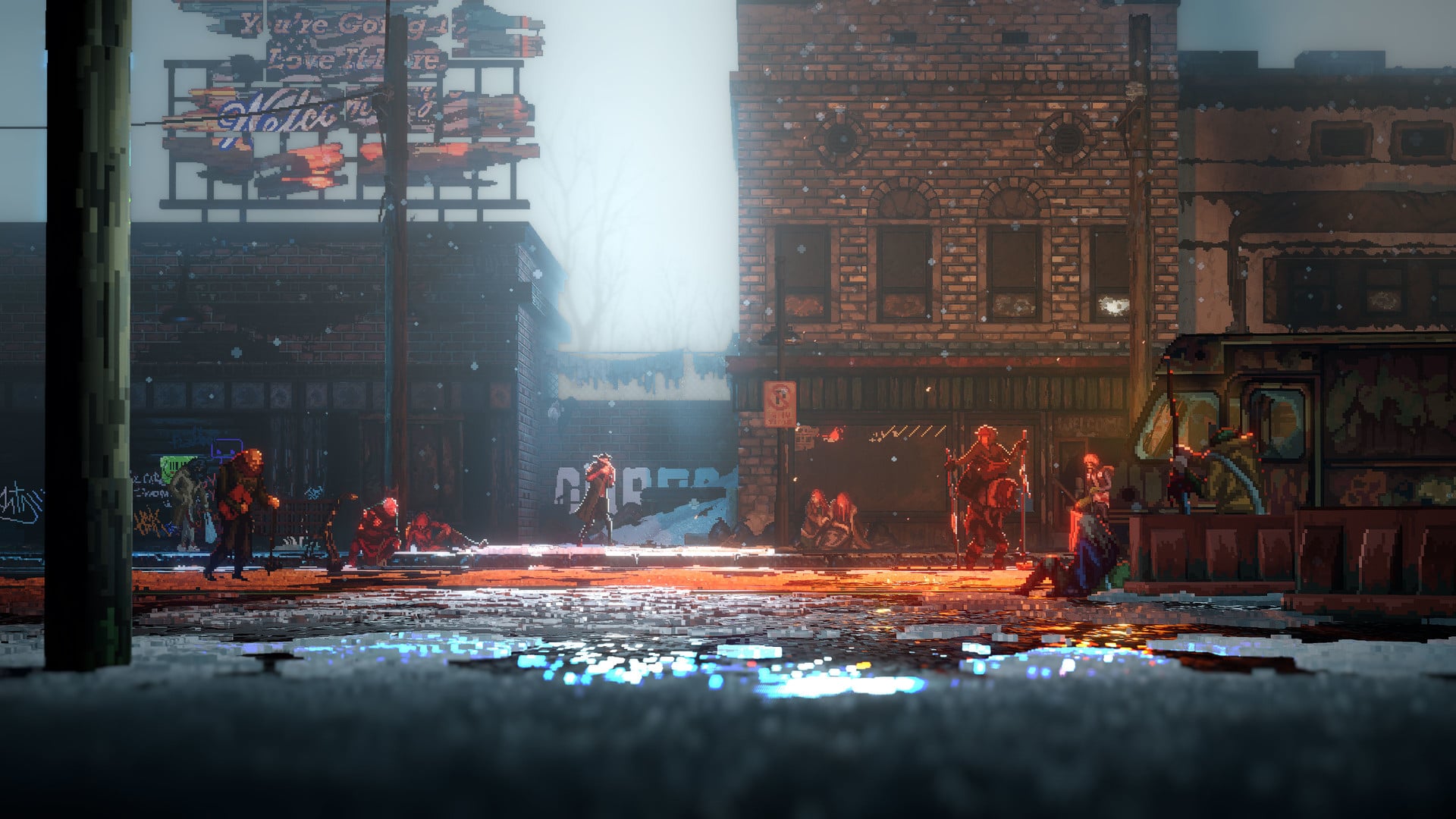
Can you explain how free-flow combat in Replaced works?
Yura Zhdanovich: I would say that it’s kind of a mix of the general 2D-style beat ’em up with the advantages of this kind of free-flow-style combat from the Arkham series. It basically is much more visual, so there is a lot of different animations, there is a lot of core attack, counterattack-style gameplay, but at the same time, being in 2D, we are restricted on what we can do with it. Because when transitioning some of the gameplay elements from inspirations from 3D, you have to be very cautious.
One of the things that very much separates it from the other beat ‘em ups is kind of the “magnet” feel to it. So, you always stick to enemies. One second you’re at one enemy, then you “magnet” to the other enemy, then someone attacks you from behind and you press the counter button. You look at the animations and start beating that guy, etc. To keep it simple, I would say that you’re always in the flow, and you’re always doing something, and you’re always reacting to something.
What is the core gameplay loop that keeps players engaged throughout the entire experience?
Igor Gritsay: Replaced, I would say, is a pretty compressed experience in terms of we don’t want to make a very long game. We want to make it long enough so we can tell our story without rushing it and without dragging it out for too long, so that’s where our traversal mechanics come in. These are the three pillars: You explore, you have this exploration of beautiful locations. You talk to people, you get to know more about Phoenix City, about the world that the main protagonist is in. Basically, you traverse like Nathan Drake does in Uncharted, with a bit of challenge where you can fall down from various hazards and stuff.
And there’s combat. Since we are not an RPG game, we don’t have this sort of in-depth progression where you can, maybe, build some stuff. We spice things up with new combat moves. We spice things up with new types of enemies. I think that for the possible length of the game, it’s really packed with new enemy types. Basically, the progression itself is in the player getting new tactics, where they meet new enemies and stuff.
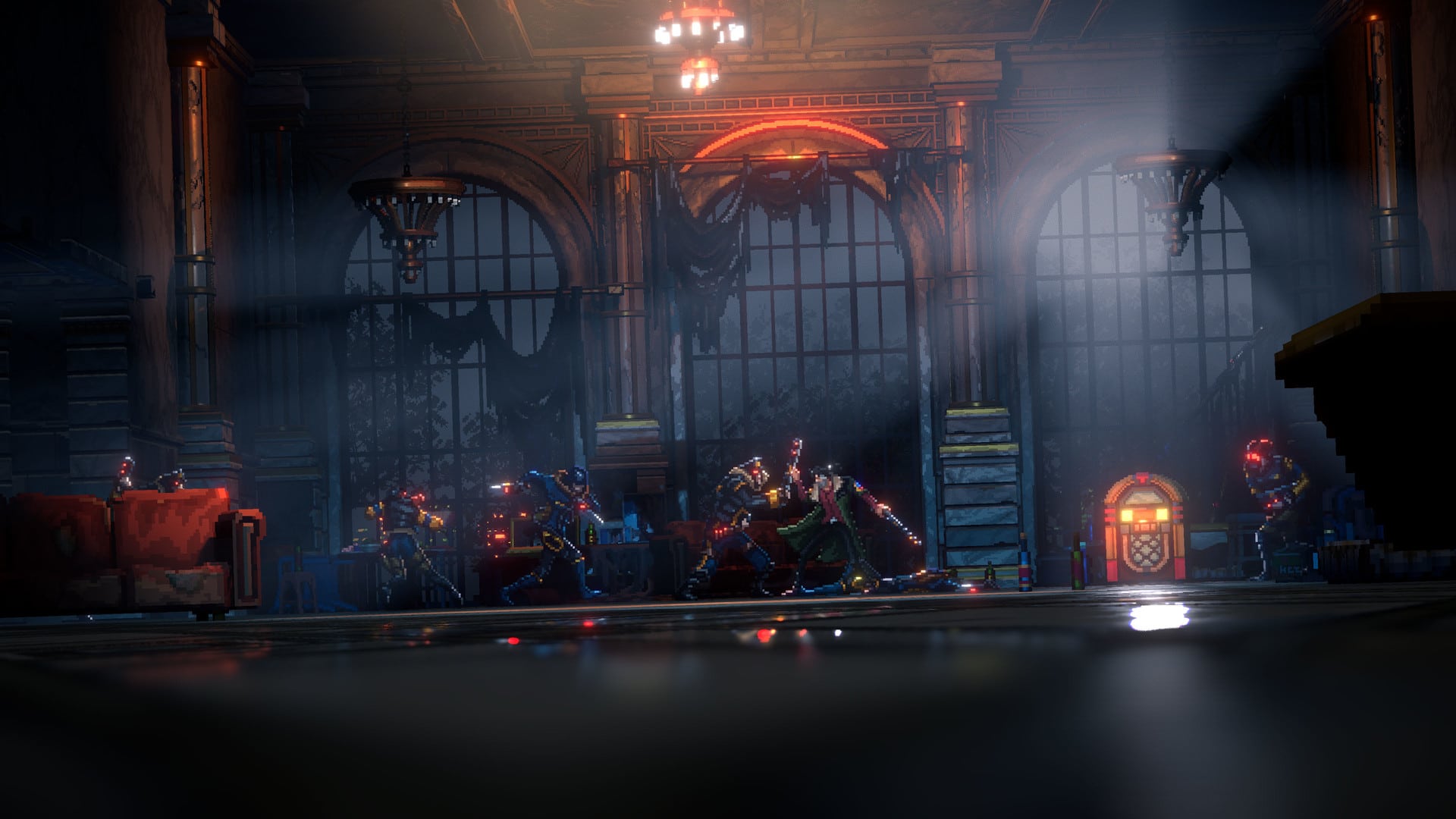
I wouldn’t say that there is a dominant pillar among these three. It’s mostly a story-driven game, but it doesn’t mean that you’ll read through text most of the time. It’s also visual with exploration. I would say platforming is a more… not a relaxed type of thing, but it’s something to give you a breather between combat sequences and to give you calm down sections.
You never know which kind of players will play your game. Because some people might skip all the cutscenes, all texts, and just rush through the levels. But I will say that, among our team, it’s a pretty compelling experience, and I would say that we really put a lot of work into not making it tedious over a long time if there are some parts a particular player might not like.
How does the world’s technology play a part in the story and gameplay of Replaced, such as with weapons? As a side question, what are the ramifications of an AI trapped in the human body?
Yura Zhdanovich: It’s a natural question we always tend to talk about when we talk about combat because our combat element was very much inspired by the movie Upgrade that you might have seen. It was basically when we decided, “Oh, we can explore this theme in this kind of way,” so we can do it still exciting but at the same time still very story-based.
Igor Gritsay: Just as a reference, in the movie Upgrade, an AI called STEM helps its carrier to fight enemies in a very inhuman way, in which the human body is incapable of.
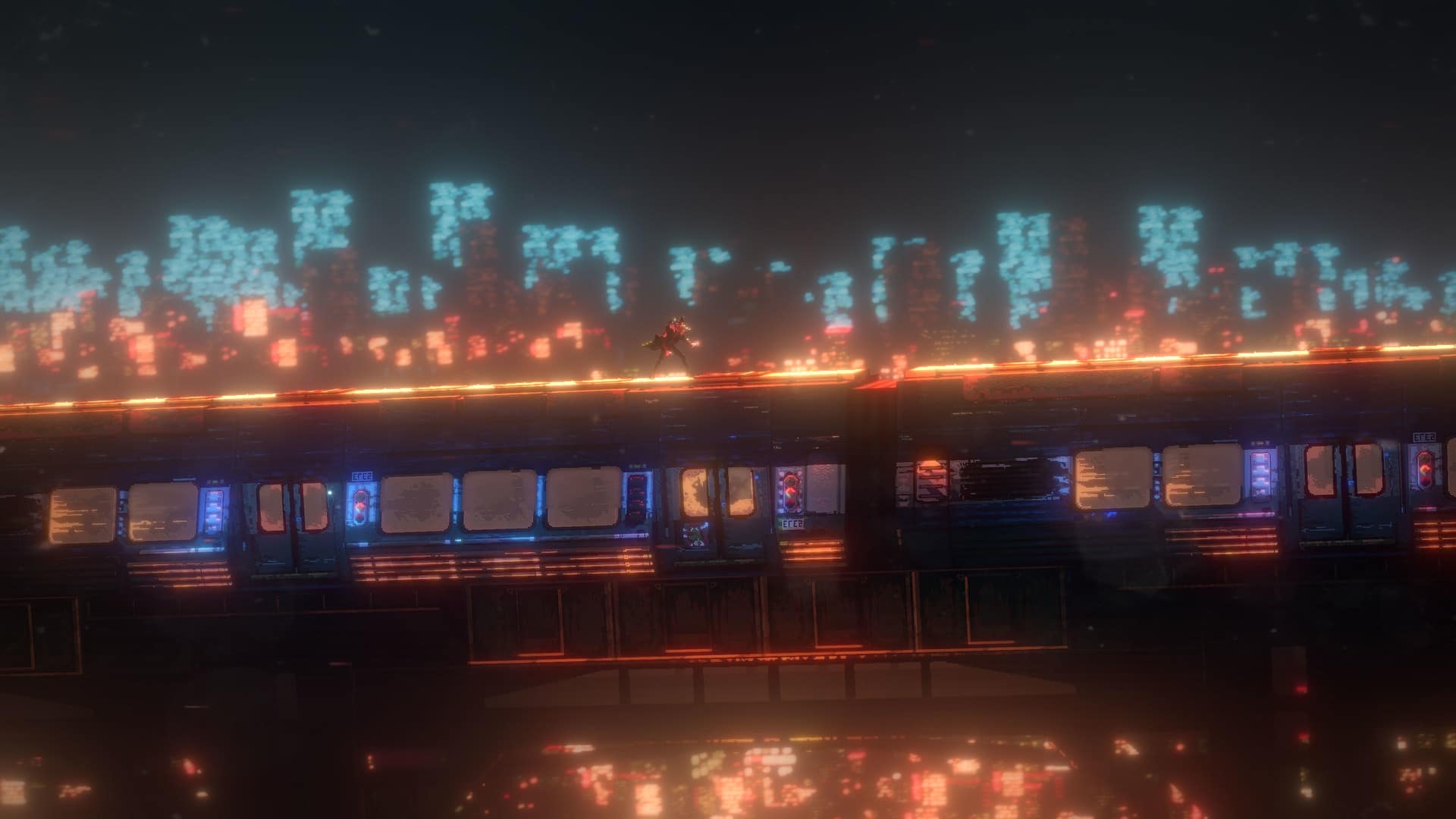
Yura Zhdanovich: Yeah, so it basically allows us to build the protagonist very much as a killing machine, in some way. At the same time, we’re not doing this straight, out-of-nowhere action hero because we have an explanation for that. It also gives some interesting opportunities for animations, and as Igor said, the combat is very visceral, so there is not a lot of censoring going on in terms of what the protagonist can do with the enemies. I think that is why we are getting an M commercial rating. [laughs]
Regarding the first half of the question, you will be using one main weapon, which is a transforming pistol. It can be a stun baton; it can be an energy pistol… This idea gave us an opportunity to mix the melee and ranged combat because we ultimately thought that doing only ranged combat as in those old games would be not very fun and would not offer a varied experience. We are also using some of the gadgets that we haven’t shown yet. There’s not a lot of them because the game is not very long. Basically, one of the things we wanted to do with technology in the game is to not make it too advanced. That’s why we are sticking to the retro-futuristic setting so as not to give the player the type of feeling that there is some Wunderwaffe type of thing for any situation.
All the weapons that some of the enemies have follow a structure of one manufacturer made them all. So they are all similar in what they can do. We are really excited that they gave us an opportunity to open up some gameplay mechanics and gameplay loops as well.
Igor Gritsay: The other major branch of technology in our game world is transportation. Basically, it has its part mostly in the narrative part of the game, and if I would say what it does to gameplay, it would be a major spoiler. So, sorry. [laughs]
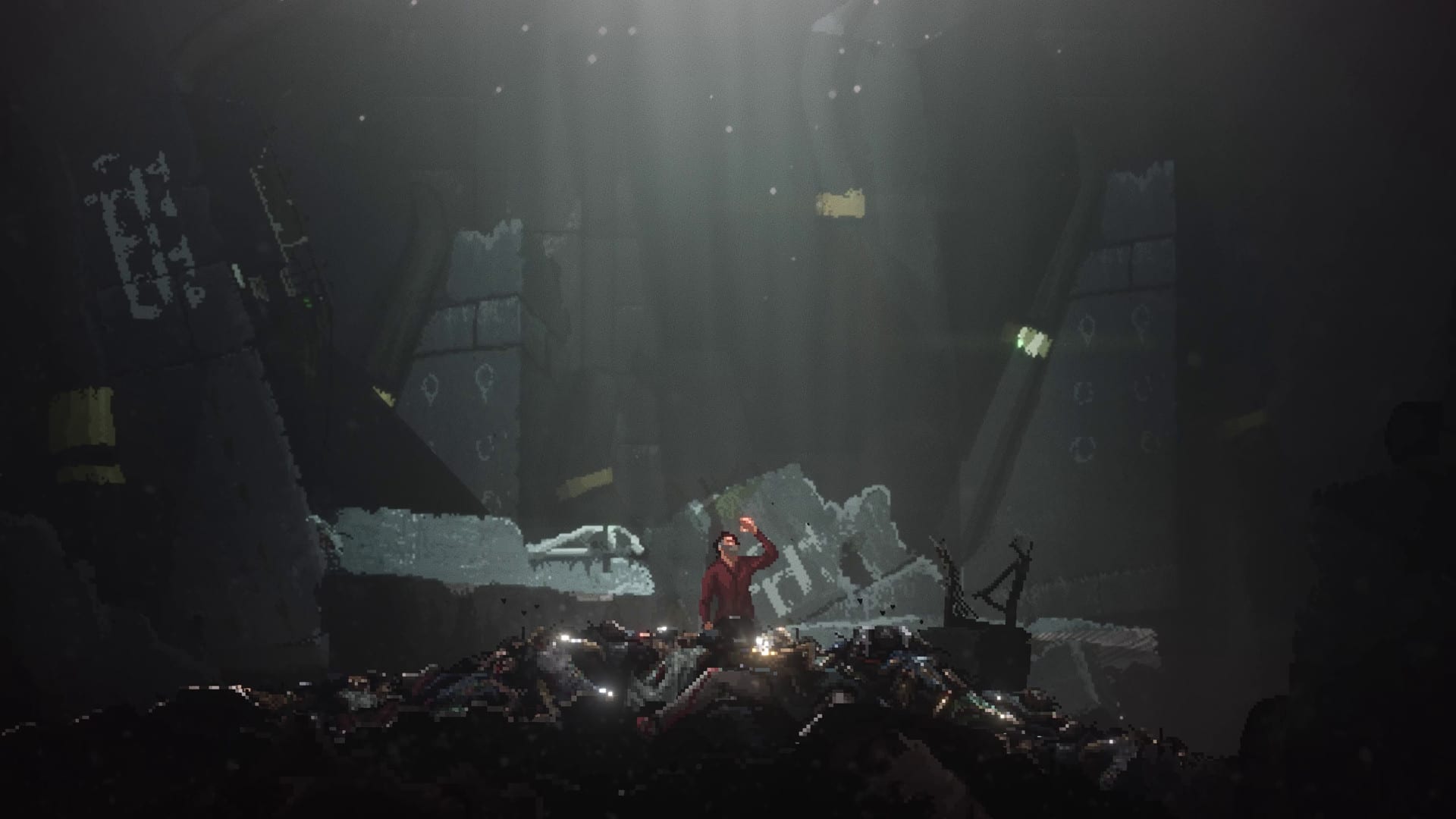
What does R.E.A.C.H., the protagonist’s name, stand for?
Yura Zhdanovich: I always forget because it’s very long, but if I recall myself, it stands for “Research Engine for Altering and Composing Humans.”
Taking a step back from the gameplay and story, can you talk about your partnership with Xbox and how a service like Xbox Game Pass is beneficial for single-player games like Replaced?
Yura Zhdanovich: I think we get this question a lot because there is a lot of interest from the press regarding Game Pass because it’s been growing so tremendously in such a small amount of time. I believe our partnership with Xbox started when we struck a deal with being a part of ID@Xbox, and it’s a great opportunity because Microsoft, right now, is very friendly to indies and very communicative. We had a lot of help from them. They were very quick to respond to any of our questions or needs.
Igor Gritsay: Basically, this very interview happened thanks to this partnership. It was a once-in-a-lifetime opportunity when we were given the opportunity to be part of their E3 show. This is also one of the perks that developers can get because we were presented with many more opportunities, but at that time, we weren’t sure that we were ready. But when you are presented with such a chance, you are like, “Screw it. We are doing it.”
For us, (Xbox Game Pass) is really beneficial. I don’t know about other studios, but I think it’s most beneficial for smaller studios. The only negative side that there can be is maybe the actual user or player retention in-game. Because when you have this kind of choice — like, 200 games? Oh, my god.
Yura Zhdanovich: I would say right now that Game Pass, today, is pretty much a win-win situation for medium-sized or smaller-sized games or teams because it provides an opportunity to reach such a great number of players. Either they will buy or will not buy your game in the end. Maybe in the future, it will shift. But right now, I would say that, if anyone is presented with this kind of opportunity, I think you should grab it and never look back.
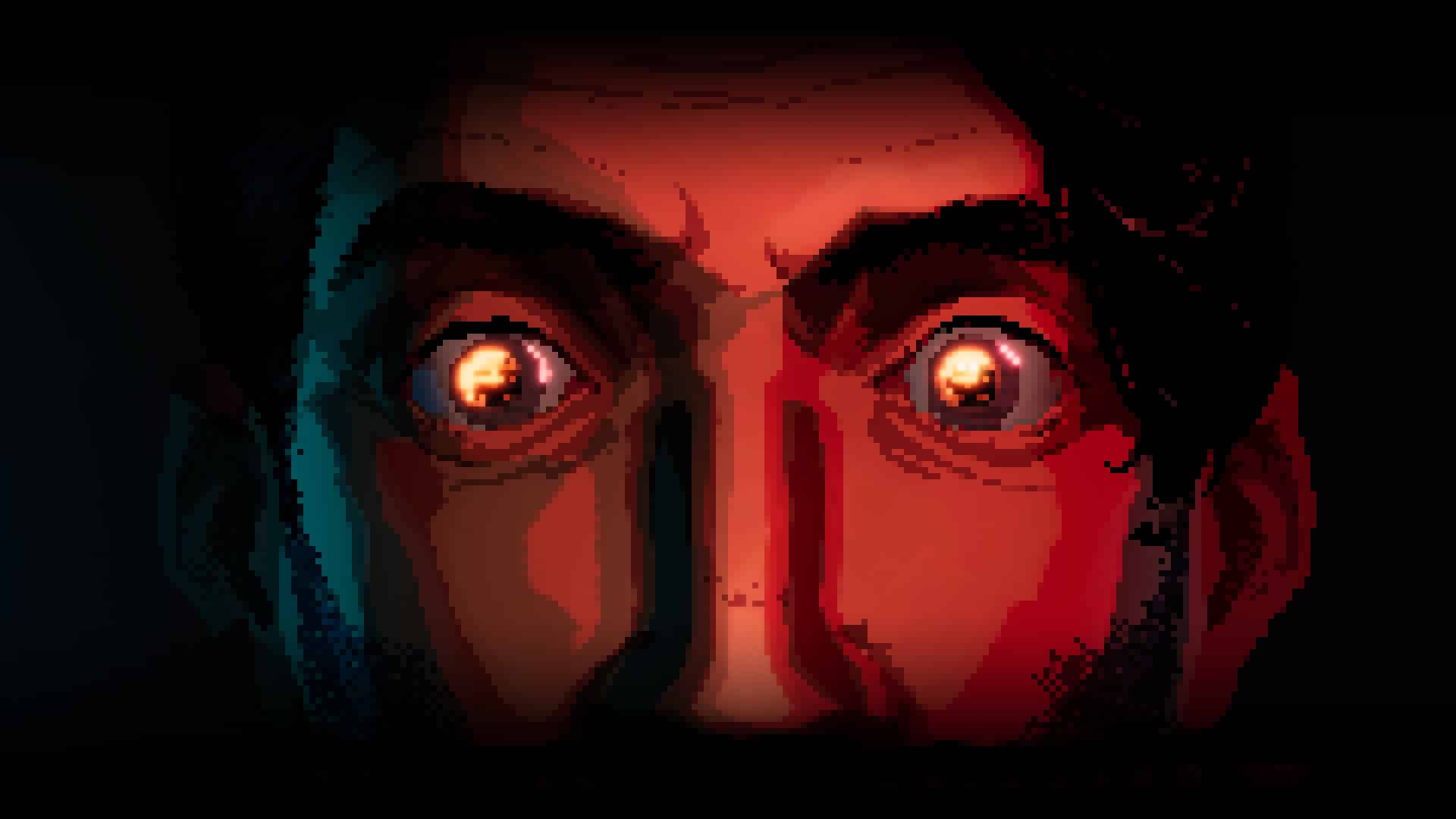
Do you have different difficulty options planned for Replaced?
Yura Zhdanovich: We have been actually talking with our game designer about difficulty options, and I believe we will have them. As of today, we are planning on it. It will mostly impact combat because in platforming there is usually a one-hit-kill type of situation. I think it will be some sort of three difficulty options.
Igor Gritsay: At the same time, we don’t want to make any commitments there because maybe we will stick to one, maybe there will be some.
Is there anything else you’d like to tell our audience about your game studio, Replaced, Xbox, or game development in general?
Yura Zhdanovich: We’re very pleased and very excited with the feedback we got from the players all around, and we are hoping that we will not disappoint with the game. You will be surprised the next time you see it. As much as you got surprised the first time. Stay tuned because we haven’t shown all of the juicy stuff yet.
Replaced will launch sometime in 2022 for PC, Xbox One, Xbox Series X | S, and Xbox Game Pass.
Last edited:

